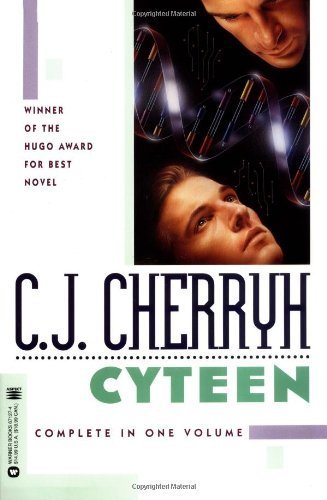The science of Cyteen has aged badly, and the book needs to be half its current length, but it does set out some really interesting ideas.
Cyteen starts as a murder mystery that has you cheering for the killer – the deceased, Ariane Emory, rapes another character in horrifying detail. The biotechnology facility where she worked sets off on a project to clone her and recreate her childhood in hopes to recover her genius. Through the life of Ariane II, and the notes of Ariane I, a more complex picture of the person emerges.
The writing is so ’80s. Not only do the people and places have Soviet-sounding names, but the galaxy is caught up in a paranoid cold war between the Alliance and the Union. I swear all the geniuses at the cloning facility sound like Bobby Fisher. Apartments have sunken living rooms. Much of the plot revolves around sleep-learning tapes, as embarrassing as sideburns.
And yet Cyteen burns the motherhood statement. It builds a world where slavery is acceptable, and almost makes you believe in it.
Here’s the idea. If you use sleep-learning tapes on a person starting in infancy, you can topiary their thoughts and motives and get something resembling a meatsuit robot. An azi. The biotech lab grows azi in tanks and builds their minds to do certain jobs and love them. The azi characters insist they like their situation. They can get citizenship under certain circumstances. Cherryh doesn’t say what, but I imagine the process is like naturalization. They have sex and even love affairs with regular humans, which raises interesting issues of consent. The azi are designed to be eager to please.
One question Cherryh doesn’t explore, that I wish she did, is whether building an azi is murder of the person the brain would have been, if it had developed on its own.
Don’t expect Cyteen to keep you on the edge of your seat, but it’s good if you know when to skim.

